Social Anxiety vs Shyness: 7 Key Differences You Must Know
There is a fine line between shyness and social anxiety. However they intertwine with each other but still have different expressions. All of these differences are important to remember for those who wish to assist their mental health.
This is a real mental health problem called social anxiety. It essentially helps to make others very afraid of being around people. Those who have it feel a great amount of anxiety, negative self-talk and often even physical symptoms in social situations. It will cause them to steer clear of social functions that affects its work or life.
Shyness is different. That makes it pretty normal. Introverts might experience anxiety in certain social situations However, they are not as miserable from it people with social anxiety. And shyness is only the way some people respond to new things or crave solitude. They can also learn how to nip it in the bud.
Key Takeaways
- Social anxiety is a mental disorder that inspires irrational fear of social situations in individuals. Introversion is a characteristic that makes people uncomfortable in social settings but they still manage to get their life together.
- People with social anxiety endure an extraordinary amount of distress and disability every day. The anxiety of shy people can be overcome and they do not have to collapse.
- Depressive and anxious thoughts are the hallmark of social anxiety, along with physical symptoms that may lead to panic attacks. It is, that i get shy and feel uneasy to be alone sometimes.
- Social anxiety requires professional help therapy and medication. Therefore, shyness is a problem if you make it so but with strategy and personal growth can be overcome.
- You Need To Know If Social Anxiety Or Shyness Are Holding Yourself Back This ensures that you are provided with the appropriate mental health services and tools to help cope.
Understanding Social Anxiety Disorder
Social anxiety disorder, sometimes referred to as social phobia or SAD. It often leads to people being very inhibitive in social environments. The moment they are around others, It may cause the heart to beat faster sweating trembling blushing square.
They feel bad thoughts and feelings too. They are afraid that they will be judged, embarrassed or laughed at by others.
This disorder can interfere with carrying out daily tasks. They can struggle with speaking in public, meeting new people going to parties or even buying food.
Social anxiety, on the other hand, is when it becomes a fear of being watched or judged from others. Social situations, they may avoid massively. That can leave them feeling isolated and lonely, unable to make friends.

| Symptoms of Social Anxiety Disorder | Symptoms of Shyness |
| Social anxiety — extreme fear or discomfort in social situations | If you find yourself feeling awkward or out of place in groups |
| Symptoms: Rapid heartbeat, sweating and trembling | Some anxiety and nervousness in social situations |
| A lack of positive thoughts, fear and feeling judged or embarrassing | With difficulty starting, continuing or fluent joining in conversations; |
| Rarely leaving the house something or anything to avoid social settings. | Small, insider social networks are preferred |
| Marked impairment in functioning. | Be able to fit in, for the most part with average social constructs |
To Cure Social Anxiety Disorder Here are a lot of therapies and things to help people cope. All of these will definitely make their existences better.
Social Anxiety vs Shyness: 7 Key Differences You Must Know
The Spectrum of Shyness
Shyness is a difficult emotion to navigate and it can be mild or extreme. At the least severe end, it creates social awkwardness. In extreme cases, they may hide from others. This kind of shyness is very human and perfectly normal.
However, for others as it increases their shyness affects life deeply. People spiral into what can best be described as maladaptive shyness. They are avoidant of social gatherings and afraid they might be criticized. When this happens, they may turn red or even sweat or tremble—something that makes life ten times harder.
- Low shyness: mild discomfort or awkwardness in social situations, even if the person wants to avoid it.
- Conversely, maladaptive shyness: is severe difficulty in social situations related to intense self-consciousness and fear of negative evaluation that results in significant distress and impairment.
But everyone varies in terms of how shy or notshy they are. Personality, life events and even the way their brain is wired can all play a role. Fact that we know about shyness, help us and our friends to cope better with it. We can get some help or support, at the right point in time.
| Characteristic | Mild Shyness | Maladaptive Shyness |
| Social Discomfort | Feelings of un-comfort or awkward occasinaly situations | Experiences of discomfort or awkwardnessUn-ability to overcome feelings stay and worsenCharacterised by significant distress in social situations |
| Avoidance | Desire to avoid or withdraw from social activity on SOME occasions | Avoidance of social activities on a large scale resulting in problems at work or other areas of life |
| Physical Symptoms | Uncommon physical sensations, for instance, getting heated or sweating. | Regular severe somatic complaints (blushing, sweating and trembling), which increases further the disrupted social interaction |
| Impact on Life | Minimal effect on social & occupational functioning | Marked impact on social, academic and occupational functioning or development being substantially undermined by depression. |
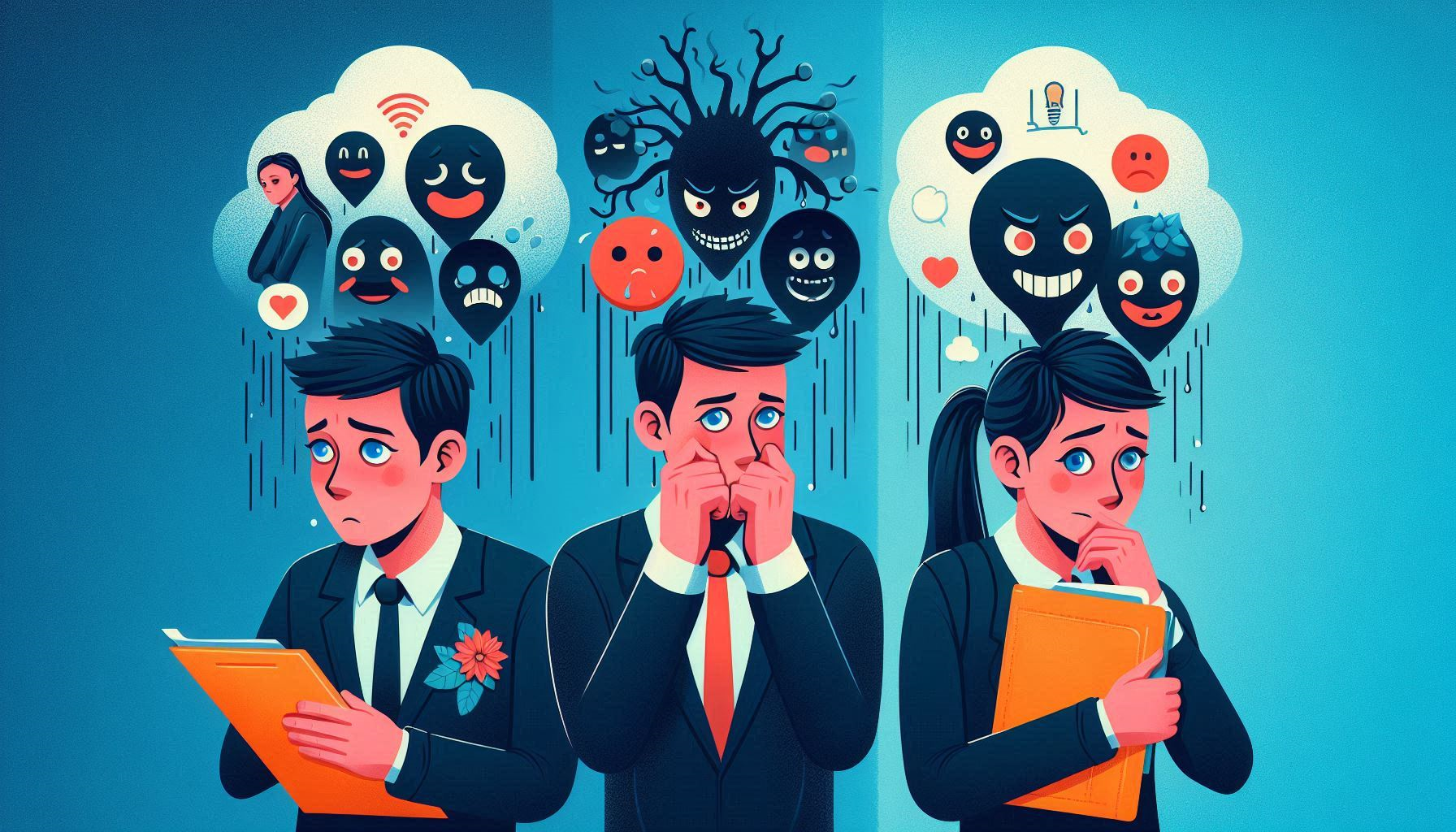
Shyness entails the acknowledgment of personal emotions. This can lead people to getting the right help or support. That goes for mild cases of shyness, and it really leaves people completely alone when the problems are severe.
“Shyness is the fear of social disapproval or humiliation, while introversion is a natural tendency to focus more on one’s inner thoughts and feelings.” – Susan Cain
Difference Between Social Anxiety and Shyness
This might look same to many of them, But is it really? But they are actually far apart in many ways. Social anxiety is a big fucking deal. It creates a big fear of… People. They are afraid that they might be judged or embarrassed.
This fear will cause them to avoid social events, become panicked, and interfere with their daily lives. But shyness is merely a characteristic Shy people often seem out of place or look like they do not belong. But they are not as terrified or avoid the social in quite the same way.
Social anxiety and Shyness are not same just the impact it has on someone’s life. The symptoms of social anxiety can be so disturbing that this illness effects not only the work but also personal life and happiness. Introverts may prefer solitude or take another round to go beyond small talk. However, they can still be highly functioning in life.
| Social Anxiety | Shyness |
| Continual, intense fear of social situations | Coming across as socially inept or awkward |
| Marked difficulty in functioning | Tends to want alone time but able to function |
| Frequently an underlying mental health disorder | Personality trait, not a disorder |
Social anxiety + shyness (this can be partially true) This is help that an individual needs as a way to learn and understand what might be happening. That way you can receive the appropriate care and treatment.
Introversion: A Personality Trait, Not a Disorder
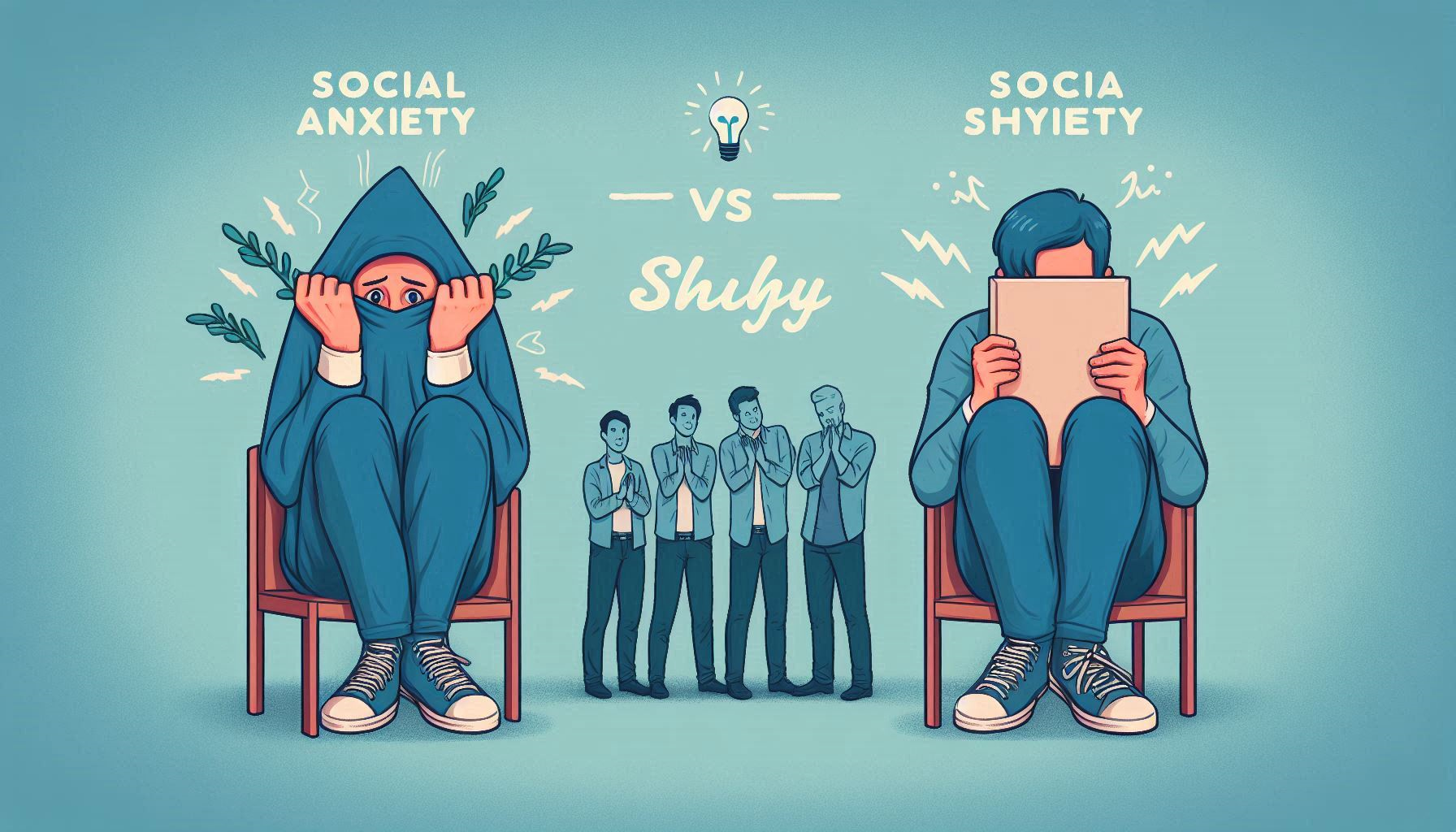
INTP (Introversion Intuition Thinking Perception) stereotype is a contagious idea. Many believe that introverted people have some sort of disease,… Not that that is in anyway bad, but it’s just something people like to be. Introversion is not shyness or anxiety – it just means that I found peace and quiet, but when youre being you Do Think on Your Own.
Introverts gain energy from spending time alone. These are beings that seek their power by recharging in the silence. Extroverts gain their energy by being around people and engaging in activities.
These distinctions are also very important for understanding the difference of being introverted, shy and anxious.
- Basically, this is how I see Introspection as a part of our behaviour and not something that needs to be fixed.
- Big crowds tire them: — In direct contrast with the extrovert, an introverted person would find places where complete silence prevails as relaxing and recharging, while large gathering make them tired. Extroverts Are Energized By Being Around Others
- Introversion is not shyness or social anxiety Those are all things that therapy can help with.
Because here is the truth: Introversion human. It’s okay to be an introvert. Life is truly fulfilling for introverts if they find means to be happy.
“The secret of happiness is to learn to appreciate the beauty of solitude.” – Marty Rubin
Understanding the pitfalls of introversion versus shyness VS anxiety helps us loads. It is what allows us to live life on our terms.Treating Social Anxiety Disorder
Multiple Treatments Provide Relief for Social Anxiety Disorder They theorize the mind, actions and body. Their target is the disease itself, looking to remediate its root causes.
Cognitive-behavioral therapy (CBT) Top-Pick for Social Anxiety It enables individuals to identify negative thinking and work for it. It provides methods for dealing with symptoms such as palpitations and sweating.
Exposure therapy Another good way of overcoming social-anxiety Gradually it immerses people into the fearful situations. This lets them gradually confront their anxiety in a safe environment.
Social anxiety is also treatable with medications. When individuals seek the help of a mental health professional to reduce those symptoms, doctors frequently prescribe selective serotonin reuptake inhibitors (SSRIs)—the most commonly prescribed class—or serotonin-norepinephrine reuptake inhibitors (SNRIs).
A combination of treatments seems to be most effective for social anxiety. This balance can help people live life in a healthier way, by reducing anxiety and promoting feeling better about oneself.
It really boils down to reaching out for support, specifically talking with a mental health professional. They will create a plan for treatment to suit you best.
Overcoming Shyness and Building Confidence
It will hold you back from stepping outside of your comfort zone and leave you unfulfilled. And although shyness is a challenging thing to tackle, confidence can be gained in the right manner. Its all about practicing social skills, chilling out and having a gradual exposure in the presence of others.
First off you gotta improve social skills Learn how to have a great ear, begin conversations and express your opinions. Seek groups, hang out with others or go for therapy.
And also, practice relaxation techniques daily to alleviate shyness and nervousness. On that note, deep breathing exercises, meditation and muscle relaxation help to take your mind from zero to a hundred in no time. It improves social times.
Gradually getting involved in social situations is one of the toughest tactics to conquer shyness. This known as: Exposure therapy Start simple with conversations among friends then move on to larger social events.
“The secret of getting ahead is getting started. The secret of getting started is breaking your complex overwhelming tasks into small manageable tasks, and then starting on the first one.” – Mark Twain
Remember, beating shyness takes time and effort. Keep using these tips and be kind to yourself. You’ll get the confidence and social skills to do well in any social setting.
FAQ
[sc_fs_multi_faq headline-0=”h3″ question-0=”What is the difference between social anxiety and shyness?” answer-0=”Social anxiety is a genuine illness that affects people to be fearful of social environments. Shyness is unhealthy embarrassment of feeling uncomfortable or nervous. Shyness is like feeling a bit awkward sometimes, but social anxiety can stop you from doing things.” image-0=”” headline-1=”h3″ question-1=”What are the symptoms of social anxiety disorder?” answer-1=”Indivuals with social anxiety disorder experience intense fear in situations where people may judge them. They could be sweating, shaking or red-faced. They fear they will be judged or embarrassed. They may avoid gatherings or people.” image-1=”” headline-2=”h3″ question-2=”How is shyness defined?” answer-2=”Shyness is merely when someone gets uncomfortable or anxious in social conditions. In severity, it ranges from mild to disabling. A gift that some have.” image-2=”” headline-3=”h3″ question-3=”What is the difference between social anxiety and introversion?” answer-3=”Introverts prefers to be alone or quiet a little more than others. What is social anxiety and when a person terrified somewhere? This means many may be shy, but do not have social anxiety disorder.” image-3=”” headline-4=”h3″ question-4=”How can social anxiety disorder be treated?” answer-4=”Social Anxiety Disorder is treated using therapy, like CBT for managing negative thoughts and behaviors. They may also utilize exposure therapy, to aid individuals in confronting their phobias. Other times, they prescribe anti-depressants or anxiety medication.” image-4=”” headline-5=”h3″ question-5=”What strategies can help overcome shyness?” answer-5=”In order to overcome shyness, one must learn social skills and build confidence. Relax by Deep Breathing. Begin by sitting in the modest comforts of social settings.” image-5=”” headline-6=”h3″ question-6=”When should someone seek professional help for social anxiety or shyness?” answer-6=”If shyness or social anxiety is really impacting your life, get help. Consult with a therapist or counselor who will treat you.” image-6=”” count=”7″ html=”false” css_class=””]
Conclusion
Now when we talk about social anxiety, Shyness is where many tend to suggest that it could be well, them both being kind of the same or intertwined some how. This is a disorder and should be treated with professionally. Shyness is more of a characteristic that can; therefore, be fixed.
If you feel seriously anxious around people to the point where it causes anxiety in other areas of life, please see a mental health professional. They will be able to assist you in coping with your feelings. Diagnosis and general treatment This could include some form of talk therapy, medication or both.
If you are shy, this can increase your courage Even just practicing small things like learning how to be more social or going out with your friends can help immensely But if you are really desperate, the fact is that…
Mental health essential you know, especially while trying to navigate social stuff. Obviously being around with people that support you, and taking care of yourself is like rule number one. Understanding the distinction between social anxiety and shyness can help you get more effective treatment.

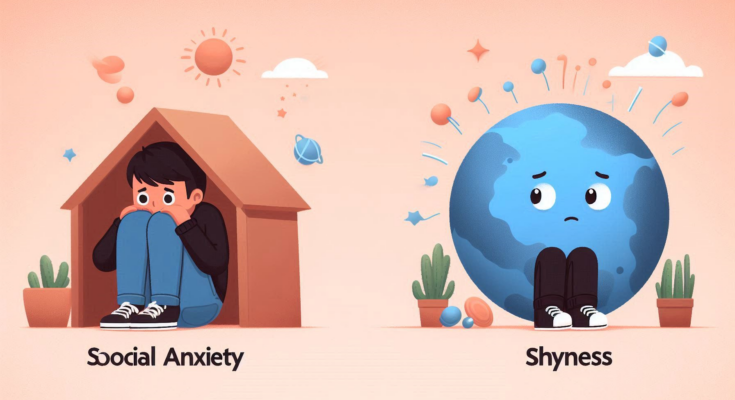
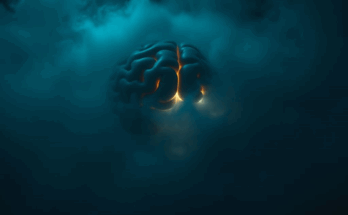
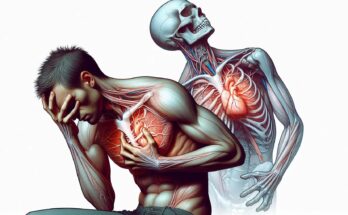
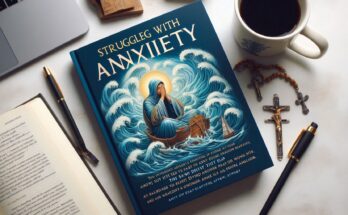
One Comment on “Social Anxiety vs Shyness 7 Key Differences You Must Know”